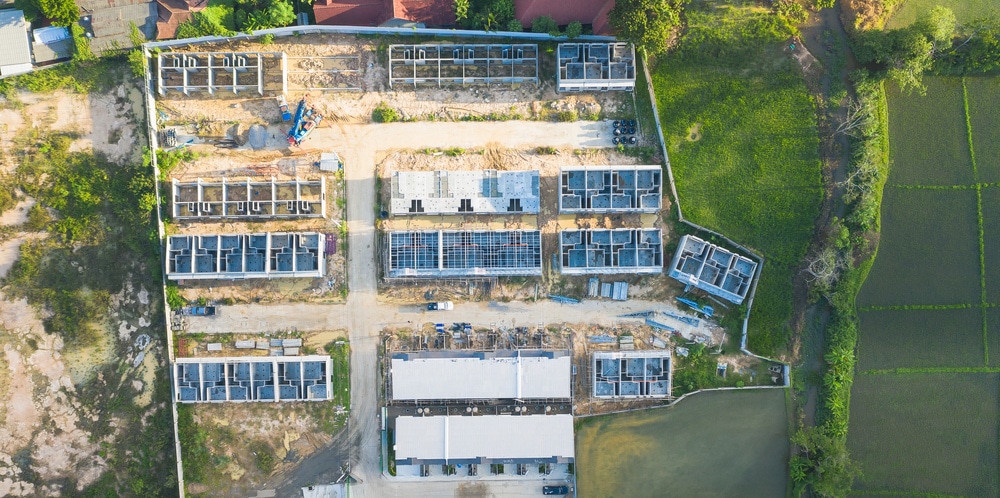
The Equity Tactic For Excelling Your Property Portfolio
While long term we know that cash flow is dependent on a good rental income, capital growth is the quickest way our property can pay us back. This comes down to having some smart tactics to get the most out of every dollar of value in our investment properties – something we like to call equity lock.
This is because the one thing we need as property investors, particularly in the acquisition phase of our journey, is access to our money.
The more cash we can lay our hands on, the more properties we can buy and start to get an income from.
Most property investors don’t start out their journey with a big bucket of cash that never empties. The majority of property investors need to borrow money from banks and lenders to get enough cash to buy that first investment.
And the quickest way to buy the next property is to have our first investment pay us back what we borrowed to buy it. In short, we want our properties to pay us back the deposit amount so we can use that money as the next deposit.
WHAT IS EQUITY LOCK – AND WHY IS IT SO IMPORTANT?
Before equity lock, comes equity. Equity happens when your property is worth more than you paid for it. Maybe the average area price has gone up thanks to an improvement in local infrastructure, or there’s a lack of stock so people suddenly need to pay more to live in your location.
Whatever the reason, your property is now worth more than you spent buying it.
Capital growth, as we’ve said before, is a vanity exercise. It’s great to swan around feeling smug that your $450,000 apartment would now sell for $500,000. But unless you do something about it, how does it really serve you?
Equity lock is the one financial tactic that a property investor needs to know how to use to grow their portfolio faster.
Once your property has equity, the smart thing to do (making sure you can still service the loan) is to revalue the property and draw out the increased amount. Property investors then use that cash as a deposit on the next one or two properties, which also yield rent income and capital growth.
IS THERE FALSE EQUITY?
Markets are constantly changing. Over the 20 years that you own a property you can expect the value to go up, go down and plateau. That’s how real estate works.
So, imagine if impacts like COVID-19 or a lack of stock or low interest-rates, push up the value of your property, above what even you think it’s really worth? Even if you eventually lose some of that capital growth and have to wait a few years to get it back, as long as you can service your loan, you still need to act fast and lock your equity in.
Property investors don’t live on capital growth. The income from rent and regular increases in that rent is what allows people to work a three day week. The more properties you own, the greater the passive income.
Locking in equity means you can buy a second, third or fourth property that much faster, which equates to more passive income.
GETTING STARTED
Let the experts at Positive Real Estate teach you about equity lock and how to make it work for you at one of our free property investing seminars.
Sign up for one of our information and education events, where you’ll be equipped with the tools, resources and support to thrive, and not fall behind on your path to financial freedom – whatever that may look like for you.
Book your spot now and find out what you need to know about the current market landscape and how you can make it work for the ultimate wealth creation opportunities.
Recent Articles
The Property Investment Basics That You Need To Know
Real estate has the potential to become your main vehicle for creating wealth, but only if you take the time to learn some crucial property investment basics to set you up for success as an investor.
Retirement Planning Tips For Property Investors
It’s the Australian dream – the clock ticks 65 (or earlier) and off you sail into the sunset of retirement to live out the rest of your years stress-free. Sadly, for some, this will remain nothing more than a dream with the drastic cost of living rising and no plan to cover the shortfall.
10 Ways To Save For A House Deposit [For Investors Or First Timers]
Saving for a house deposit to get onto the property investment ladder is tough. Especially with the cost of living drastically going up. After bills, rent/mortgage, groceries, petrol, insurance… there isn’t a whole lot left for saving. But that doesn’t mean it’s impossible! By adopting these 10 ways to save for a house deposit you’ll be ten steps closer to building out your portfolio and creating future wealth.
Learn Property Investment In 2022 – Where To Start!
With a commitment to learn property investment and all its ins and outs you’ll be able to grow a booming property portfolio, enjoy passive income streams and eventually create financial security for retirement. Here’s a list of how you can get started…
5 Questions To Ask Before Investing In A House
Some may stumble across a business opportunity, or perhaps investing in shares, but our go-to vehicle is real estate. Real estate is a long game that has the potential to provide generational legacy wealth, if done correctly. To set yourself apart from the 99% of investors who fail, you need to ask these 5 questions before investing in a house.
How To Protect Your Real Estate Assets For Long-Lasting Wealth
Protecting your real estate assets is perhaps more important than building them. Obviously we always hope for the best, but there are many things that can go wrong and when they do, you and your assets are at risk. Incorporating prevention measures into your investment strategy could be the difference between you continuing to build out your wealth or losing everything you own.
How Investors Can Use Equity Lock To Grow Their Portfolio
How to make money from subdividing land largely depends on how you choose to do it. One thing for sure though is that when done right, it can catapult your portfolio significantly in a very short time!
How To Make Money From Subdividing Land?
As an investor, there are many different strategies that you can employ to generate wealth, and a strategy that is great for instant equity gains is subdivision. But, while it sounds like an exciting project to take on, how do you actually make money from subdividing land?
The Money Management Skills You Need For Real Estate In 2022
Real estate is the perfect asset structure for wealth building, but it has to be done right – and that means having solid money management skills to back you as you make these major financial decisions. Some of these skills may seem obvious – like having a budget – but you’d be surprised how many young investors didn’t get to build this foundation of knowledge through their school or home life.






![10 Ways To Save For A House Deposit [For Investors Or First Timers]](https://positiverealestate.com.au/wp-content/uploads/2022/09/saving-for-a-deposit.jpeg)





